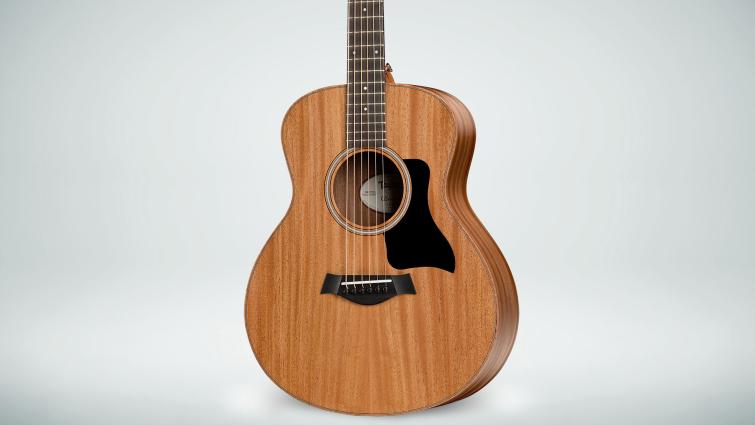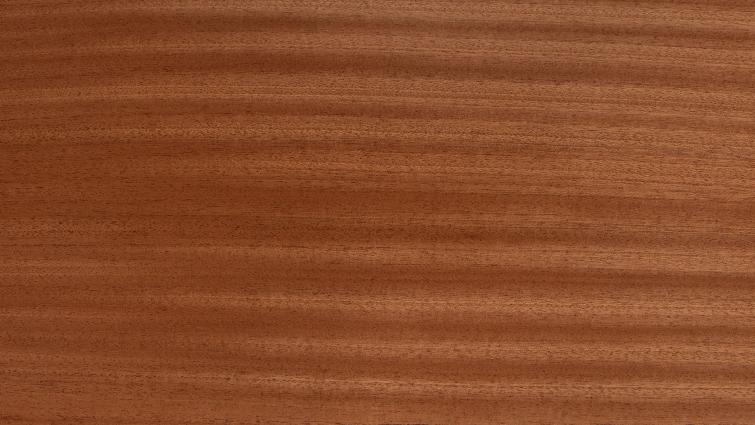Taylor GS-MINI-SAPELE GS Mini - Spruce Top, Sapele b/s, Natural
- Vendor
- Taylor
- Regular price
- $499.00
- Sale price
- $499.00
- Regular price
-
$499.00 - Unit price
- /per
Adding product to your cart
- Description
- Features
- Specs
- Inspection and Set-up
- Humidity Care
*These are stock photos. Actual color and pattern may vary.
Whether you're a new player looking for a comfortable first guitar or an experienced guitarist seeking a travel companion, the GS Mini Sapele offers the ideal combination of portability and rich tone. This model features a solid Sitka spruce top paired with layered sapele back and sides, yielding a bold, clear response that punches far above its weight as a shorter-scale guitar. Players will appreciate the slender neck profile and low action, providing a relaxed feel that's accommodating to players of all skill levels. And with the included gig bag, you're all set to take the GS Mini Sapele on the road for any musical occasion.
- This guitar includes a gig bag.
GS Mini Shape
A scaled-down GS that’s anything but small.

Layered Sapele
Layered wood construction is used to offer attractive, durable and affordable models.

Sitka Spruce
The soundboard choice for most guitars, Sitka spruce produces a broad dynamic range and accommodates a versatile range of playing styles.

- Highlights
- Scale Length: 23-1/2"
- Pickguard: Black
- Tuners: Die-Cast Chrome
- Strings: Phosphor Bronze Medium
- Body Width: 14 3/8"
- Nut & Saddle: Nubone Nut, Micarta Saddle
- Truss Rod Cover: Black Plastic
- Number of Frets: 20
- Case: Structured Gig Bag
- Body Length: 17 5/8"
- Body Depth: 4 7/16"
- Body
- Back Config: 2-piece or 4-piece Simons Wedge
- Rosette Size: Three Ring
- Back/Side Finish: Matte
- Backstrap Wood: None
- Stain/Sunburst: None
- Armrest: No
- Top Finish: Matte
- Backstrap Finish: None
- Bridge Inlay: None
- Armrest Binding: None
- Wedge: None
- Neck
- Neck Width: 1-11/16"
- Fretboard Binding/Edge Treatment: None
- Type of Neck Joint: Scarf
- Fretboard Wood: Ebony
- Heel Length: 3"
- Fretboard Inlay: 4mm Dot Italian Acrylic
- Heel Cap Binding: Black
- Neck/Heel: Tropical Mahogany
- Neck Finish: Matte
- Peghead
- Peghead Finish: Matte
- Peghead Type: Paddle - GS Mini
- Headstock Overlay: Copafera
- Peghead Logo: Plastic, White Rub-On Decal
- Peghead Binding: None
- Peghead Inlay: None
- Other
- Bridge Pins: Black
- Fingerboard Ext: None
- Edge Trim: B/W/B
At Easy Music Center, we care for our instruments from the moment they arrive to when they ship to your door. All instruments are stored in a climate controlled environment and put through a 12-point inspection checklist before being shipped.
First, we check the finish of the instrument, carefully inspecting any blemishes on the surface. Next, we check the playability and setup by inspecting and adjusting the truss rod (if available), bridge, nut, and frets to manufacturer factory specifications. Any request made outside of manufacturer factory specifications can incur additional charges for parts and labor. If the instrument has electronics, we test all of the electronic components to make sure they are functioning properly.
After a thorough inspection, we then move on to maintenance. We start by lubricating any moving parts on the instrument, such as tuning machines. We then move on to cleaning and oiling the fretboard along with the frets.
Once maintenance is done, we stretch and tune the strings and play test the instrument. After this, we do a final inspection and clean/detail the instrument before packing it up for shipment.
We’re excited to be a part of your instrument buying experience.
Acoustic guitars and ukulele are made of wood, and wood is sensitive to changes in climate. Shifts in temperature or relative humidity can affect your instrument in multiple ways, some of which can lead to costly repairs if you’re not careful. Solid woods in particular are especially prone to the effects of climate fluctuation. For example, extended exposure to low relative humidity (below 40% RH) can dry out the wood, causing it to shrink and run the risk of cracking. Similarly, excessive humidity can cause the wood to absorb moisture and swell, potentially causing other problems. Without adequate humidity control (especially in drier local climates), acoustic instruments can crack and their necks can warp, causing problems with fretting, intonation and playability.
So how do you prevent this kind of damage? Easy: by keeping your guitars and ukulele properly humidified (ideally between 40-60% RH). The easiest way to do this is by storing your instruments in a case with a case two-way humidifier inside. A two-way humidifier will slowly absorb or release moisture inside your case, maintaining humidity to help ensure your instrument doesn’t suffer damage. Using a digital hygrometer can help you monitor humidity levels around your instrument.
Symptoms of a dry acoustic instrument:
- Low action. Strings are very close to the fretboard.
- Hump on the fretboard where the neck joins the body.
- Sunken top across the soundboard between bridge and fingerboard.
- The back of instrument looks very flat when it is dried out.
- Sharp fret ends extend beyond the edge of the fretboard.
- The plane of the neck angle on a dry instrument hits above the top of the bridge.
Symptoms of a wet acoustic instrument:
- High action. Strings that are unusually high off the fretboard, making it difficult to play.
- Unusually swollen top
- Unusual warp on the top, back or both at the end-block
- Improper neck angle. Sighting the neck to the bridge, the frets will appear to hit below the bridge.
The D’Addario Two-Way Humidification System
Using patented technology, the D’Addario Two-Way Humidification System features disposable, moisture-filled packets with a breathable membrane that provides two-way humidity control, meaning it can either release or absorb moisture to consistently maintain a predetermined relative humidity (RH) level of 45-50 percent.
Music Nomad Humilele Ukulele Humidifier
Music Nomad the leader in equipment care products, has developed an easy to use, no mess, and low maintenance Ukulele humidifier. The Humilele rests securely on top of the strings to safely and evenly hydrate your Ukulele to avoid these problems.
Final Notes on Humidity Control
To monitor the amount of humidity your instrument is receiving, we recommend the purchase of a digital hygrometer, a device that gauges and provides a read-out of humidity levels. It can be kept in the room where you store your instruments, or, better yet, in a central location inside the instrument case, preferably Velcro’d to the outside of the accessories compartment (facing the heel). The optimal range for your guitars and ukulele is 45-55% RH.




